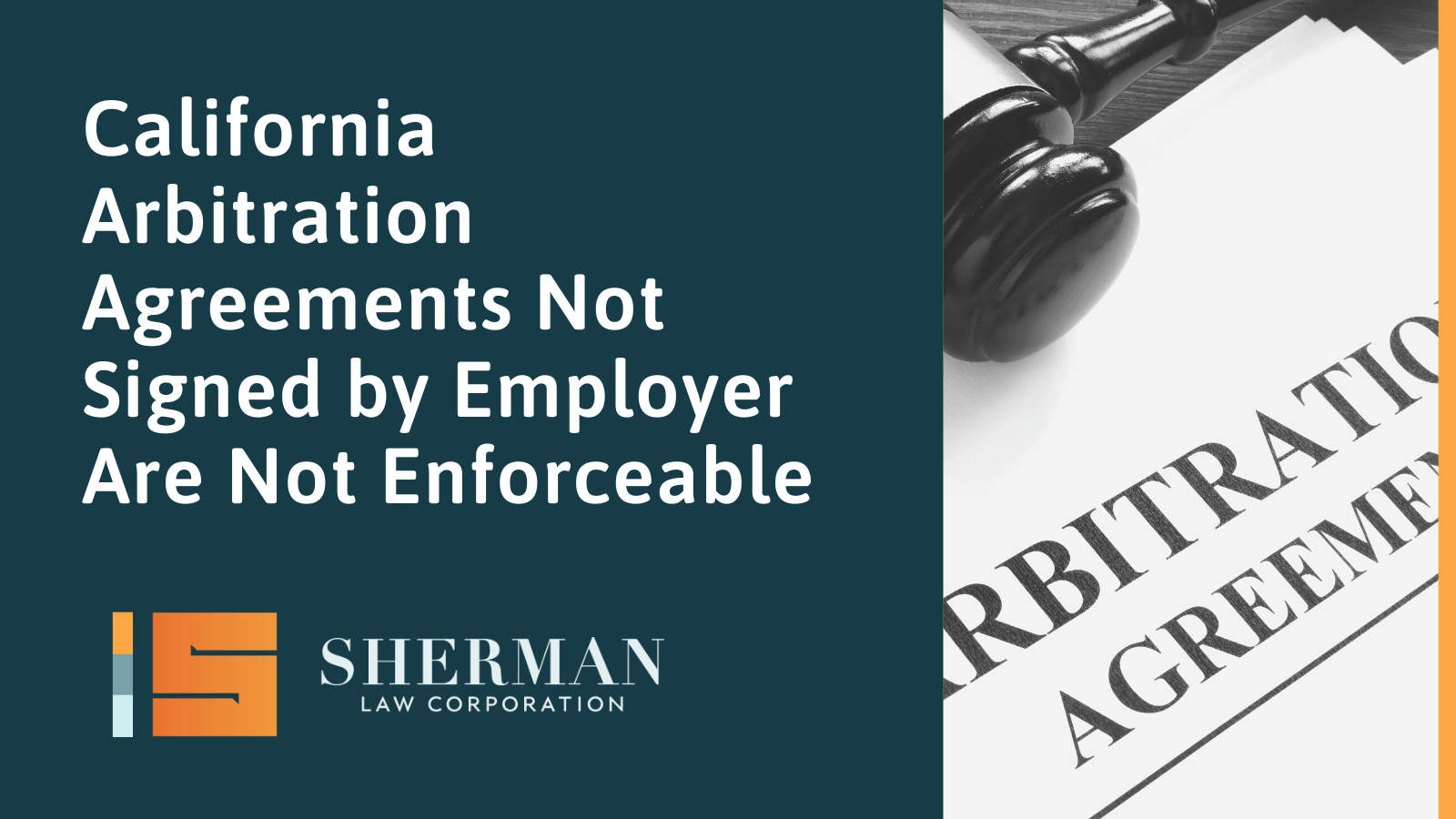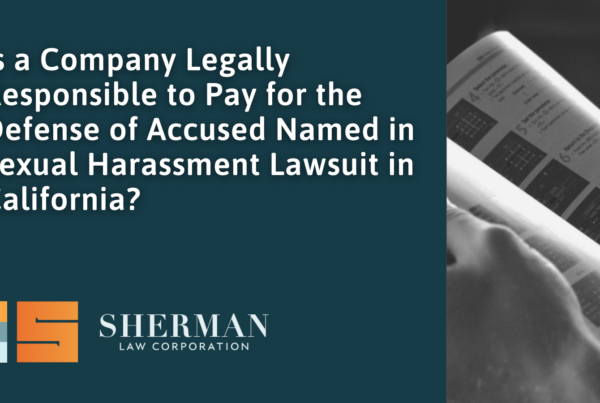
The California Court of Appeals in Ortiz v. Nellson Nutraceutical, Calif. Ct. App., No. G061411 (Aug. 23, 2023), recently held that where an arbitration agreement contained signature blocks for both the employee and the employer’s signatures, but the employer never signed it, the employer could not enforce the agreement.
From experienced California employment attorney Lisa Sherman, here’s what California employers need to know about this ruling.
Ortiz v. Nellson Nutraceutical
In this case, an employer drafted an agreement to arbitrate and presented it to an employee who signed it and returned it, but the employer did not countersign it, and thus, the employer could not enforce the agreement, a California appeals court recently ruled.
In 2015, the employee began working for an Anaheim, California-based manufacturer of nutrition bars. That same year, the employer presented the employee with a six-page arbitration agreement. The arbitration agreement stated its enforcement would be governed by the Federal Arbitration Act and that both parties agreed to submit any workplace-related dispute or claim to final and binding arbitration.
On its final page, two paragraphs before respective signature blocks for the employee and the employer, the agreement contained the following single-sentence paragraph about signatures: “The parties understand that by signing this agreement, they give up their right to a civil trial and their right to a trial by jury.”
The employee signed the arbitration agreement and delivered it to the employer’s HR department the same month it was presented to him in 2015. In 2020, the employer fired the employee, who then filed a lawsuit, claiming that he was improperly discharged after he raised concerns about unsafe working conditions.
The employer filed a motion to compel arbitration based on the arbitration agreement. It supported its motion with a declaration by its HR manager that presented factual context for the employee signing the agreement, including his subsequent delivery of it to the employer. The employee opposed submitting his claims to arbitration, arguing that the employer failed to carry its burden to show mutual consent to the arbitration agreement because it was undisputed that the employer never countersigned it.
The trial court agreed that the employer had failed to show mutual consent and denied its motion.
The court found that the arbitration agreement envisioned that each side would physically sign the agreement, based on the signature paragraph. The trial court explained that the paragraph’s language was evidence of the parties’ intent to bind the parties based on their signatures, and so the employer’s failure to countersign the agreement showed no mutual consent was reached.
The employer appealed.
The Appellate Court Found Mutual Consent Lacking
The Appellate court first recognized that, when deciding whether the parties agreed to arbitrate a certain matter, courts generally apply ordinary state law principles that govern the formation of contracts.
The basic goal of contract interpretation is to give effect to the parties’ mutual intent at the time of contracting, the court explained. It is essential to the existence of a contract that there should be consent by the contracting parties which must be free, mutual and communicated by each to the other. The existence of mutual consent is determined by objective rather than subjective criteria, the court noted, the test being what the outward manifestations of consent would lead a reasonable person to believe.
Accordingly, the court said, the primary focus in determining the existence of mutual consent is upon the acts of the parties involved. Unambiguous contract language about the meaning of a countersignature can justify a conclusion that the absence of the signature shows the negotiating parties never reached mutual consent.
Here, it was undisputed that the employer’s offered arbitration agreement contained a line for its own signature that was preceded by the signature paragraph and that the employer at no time countersigned the agreement or otherwise communicated about it after the employee’s return of his signature to the employer. Given this record, the Appellate Court agreed with the Trial Court that mutual consent was not reached because the words of the signature paragraph unambiguously showed the parties intended for the employer to communicate its consent through a countersignature.
The parties’ conduct therefore objectively manifested a lack of communicated mutual consent about arbitration.
The court rejected the employer’s reliance on previous rulings in other cases that the employer’s countersignature was not required to render an arbitration agreement enforceable. In those cases (and unlike in this case), the court said, the agreements contemplated only the employee’s signature.
The appeals court affirmed the trial court order denying the former employer’s motion to compel arbitration.
California Employer Takeaways
California employers must sign any arbitration agreement and return a fully executed copy to the employee or the agreement will not be enforced.
Contact Sherman Law Corporation Today
For more information on enforcing arbitration agreements, feel free to contact Sherman Law Corporation at (323)488-2087 or Lisa@sherm-law.com.




